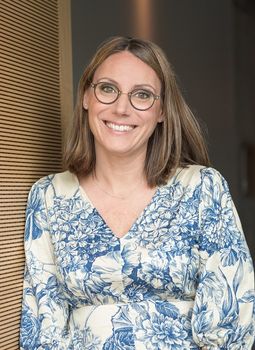A cégep diploma from the 1970s : that is the extent of the academic credentials of Claude Amiot, aka Madame Claude, from Saguenay-Lac-Saint-Jean.
Today, however, Amiot is a full-fledged university researcher. She is conducting a research project as part of a team led by Annie Pullen Sansfaçon, a professor in Université de Montréal's School of Social Work who holds the Canada Research Chair on Transgender Children and Their Families.
The collaboration was made possible by the Fonds de recherche du Québec's ENGAGE program, a participatory science program under which citizens can propose a research idea and pursue it in close collaboration with a researcher.
A very personal interest
Amiot is a 68-year-old trans woman who began transitioning at the age of 62. It took three years before she began to start feeling good about herself and start working and presenting as a woman. Her prime source of discomfort was her face, more precisely her beard. Removing it with electrolysis is a long, expensive procedure, especially when the hair is white.
The Quebec Ministry of Health and Social Services covers the cost of genital reassignment surgery for trans people and of mastectomies for trans men. However, medicare doesn't cover procedures deemed cosmetic, such as facial surgery, breast augmentation, voice training, hair transplants and laser hair removal.
"When I looked in the mirror in the morning, my problem wasn't with my crotch, it was with my face," said Amiot. "I thought it was dumb. For my well-being, my mental health and my development as a woman, I would much rather have had the hair removal treatment. I wanted to be able to present as a woman socially, first of all, not just sexually."
According to the scientific literature, vaginoplasty and phalloplasty significantly reduce gender dysphoria, depression and suicidal thoughts in trans people. But what about in real life?
To find out, Amiot began looking into the question and discussing it with the people she knew and the members of Entraide Trans Saguenay-Lac-St-Jean, the peer support group she heads.
"In my discussions, I rarely heard people say that their genitals were the most urgent thing," she recalled. "It was more often their hair, breasts, and so on. And when I looked at the literature, I couldn't find any studies that investigated trans people's real needs, their priorities during their transition."
Why not conduct one herself? That's when she heard about the ENGAGE program..
With Pullen Sansfaçon's help, Amiot will soon conduct an intergenerational community survey on the types of interventions that trans people wants most, as well as their obstacles and their effects.
An inspirational message
In addition to her research topics, Amiot has an inspirational message: being yourself can take you a long way.
"I'm a 68-year-old woman, living in a small town, to boot," she said. "Suddenly, thanks to my transition, I've become a researcher, despite having no academic background whatsoever. Look where being yourself can lead you!"
She believes the research project will not only help answer questions she cares about but also introduce her to academic research: the different types of studies, their subtleties and dangers, developing skills such as analytical thinking and identifying cognitive bias.
"The past year has changed the way I perceive and analyze situations, even in my personal life," said Amiot. "I now have a more open attitude, and research seems much more accessible to me. I used to think of Annie as a researcher up on a pedestal, but the moment we met, that image evaporated. I feel like we're equals."
Pullen Sansfaçon concurs. She feels the project is bringing research out of the ivory tower and "stimulating creativity through co-construction and by pulling people out of their comfort zone."
Amiot has become a booster of the ENGAGE program and encourages anyone, from students to seniors, who has a question that could be turned into a research topic to apply.
"It would be great if others could take advantage of this opportunity," she said. "I have such an amazing life. And if I hadn't made the decision, even at my age, to live my true gender identity, I'd probably be sitting in front of the TV. Instead of which, I'm a researcher!"







